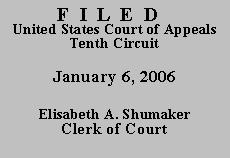

Miller filed this pro se § 1983 action on November 18, 2004, asserting five claims for relief against fourteen individuals employed by the Oklahoma Department of Corrections. In sum, Miller's claims for relief included: (1) the denial of due process during the course of prison disciplinary proceedings conducted in February and July 2004 in which earned credits were deducted as punishment; (2) the denial of due process prior to his removal from a prison job; (3) retaliation for having complained about an alleged violation of his First Amendment free speech rights; (4) denial of the right to freely exercise his religion; and (5) the deprivation of personal property in violation of his due process rights. The magistrate judge assigned to the case, acting pursuant to 28 U.S.C. § 1915A, issued a report and recommendation on May 25, 2005, recommending that the first claim be dismissed without prejudice for failure to state a claim, the second and third claims be dismissed with prejudice for failure to state a claim, and the fourth and fifth claims be dismissed without prejudice for failure to exhaust administrative remedies. Miller objected to some, but not all, of these recommendations. On June 29, 2005, the district court overruled Miller's objections, adopted the report and recommendation, and dismissed Miller's complaint.
In this appeal, Miller first contends that, because he paid the full filing fee in the district court, the district court erred in dismissing his complaint without first serving it upon the defendants. Miller's argument is clearly without merit. Section 1915A of Title 28 outlines a screening procedure that applies to all civil complaints filed by prisoners against governmental entities, officers, or employees regardless of whether the prisoner has paid the filing fee. Under that procedure, a district court is required to review the complaint "before docketing, if feasible or, in any event, as soon as practicable after docketing . . . ." 28 U.S.C. § 1915A(a). If, upon such review, the district court determines the complaint "is frivolous, malicious, or fails to state a claim upon which relief may be granted," the district court is required to dismiss the complaint. 28 U.S.C. § 1915A(b)(1). By conducting this screening procedure and dismissing Miller's complaint before serving it upon the named defendants, the district court clearly complied with the dictates of § 1915A and did not err.
Miller next contends the district court abused its discretion in dismissing his retaliation claim for failure to state a claim. According to Miller, the district court must have "reached its decision [only] after a weighing of the facts and making credibility determinations regarding [his] allegations . . . ." Aplt. Br. at 6. We disagree. Miller's retaliation claim was based in large part on his allegation that certain of the defendants, in retaliation for his allegedly exercising his First Amendment rights, filed false disciplinary charges against him that ultimately resulted in his placement in segregation and the deduction of good time credits. Because, however, a judgment in Miller's favor on his retaliation claim would necessarily imply the invalidity of his disciplinary convictions, Miller must first successfully challenge those disciplinary convictions in a habeas proceeding before proceeding on his § 1983 claim.(1) See Edwards v. Balisok, 520 U.S. 641, 648 (1997); Heck v. Humphrey, 512 U.S. 477, 487 (1994). The only other relevant allegation made by Miller is that the defendants also retaliated against him by removing him from his prison job without cause. A review of the materials submitted by Miller in support of his complaint, however, establishes that Miller was removed from his prison job due to his unauthorized use of a computer, a fact which Miller has not disputed. In sum, we agree with the district court that Miller has failed to state a claim of retaliation upon which relief can be granted.
Lastly, Miller attacks the district court's dismissal without prejudice of his free exercise of religion claim, arguing that the district court erred in concluding that he had failed to exhaust his administrative remedies. More specifically, Miller complains that the district court should have accepted his allegation that he exhausted his administrative remedies, rather than relying on the copies of grievance materials submitted in connection with the complaint. Again, we disagree. As the magistrate judge correctly noted in his report and recommendation, the grievance materials submitted with the complaint clearly refute Miller's assertion that he exhausted his administrative remedies with respect to his free exercise of religion claim. Thus, we conclude the district court properly dismissed the claim without prejudice. See Steele v. Fed. Bureau of Prisons, 355 F.3d 1204, 1210 (10th Cir. 2003) (noting that the burden of establishing exhaustion of administrative remedies is on the prisoner/plaintiff, who must either attach a copy of the applicable administrative dispositions to his complaint, or describe with specificity the administrative proceedings and their outcome).
The judgment of the district court is AFFIRMED. Miller's motion to proceed on
appeal in forma pauperis is DENIED and he is hereby ordered to pay the unpaid balance of the filing fee.
ENTERED FOR THE COURT
Mary Beck Briscoe
Circuit Judge
*.This order and judgment is not binding precedent, except under the doctrines of law of the case, res judicata, and collateral estoppel. The court generally disfavors the citation of orders and judgments; nevertheless, an order and judgment may be cited under the terms and conditions of 10th Cir. R. 36.3.
1. We note that Miller's complaint specifically sought the return of the good time credits that were revoked as a result of the disciplinary convictions. To obtain such relief, Miller's sole remedy in federal court is to file a petition for writ of habeas corpus pursuant to 28 U.S.C. § 2241 after first exhausting all available remedies under Oklahoma state law. See Preiser v. Rodriguez, 411 U.S. 475, 500 (1973).